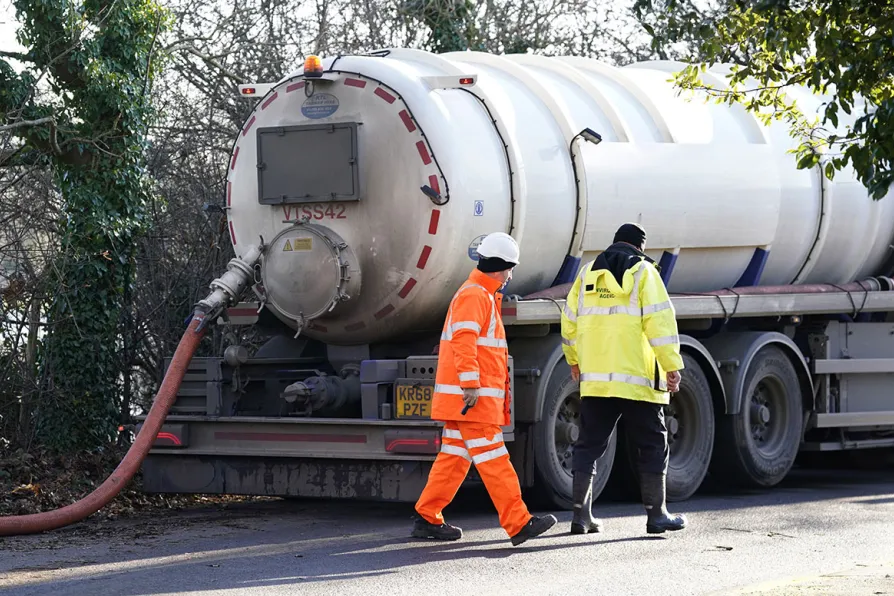Water companies record worst-ever environmental performance in England as serious pollution incidents increase by 60% in 2024, Environment Agency finds

 A tanker pumps out excess sewage from the Lightlands Lane sewage pumping station in Cookham, Berskhire which flooded after recent heavy rainfall, January 10, 2024
A tanker pumps out excess sewage from the Lightlands Lane sewage pumping station in Cookham, Berskhire which flooded after recent heavy rainfall, January 10, 2024
EMBATTLED water companies have recorded their worst-ever environmental performance in England, with serious pollution incidents up 60 per cent last year, data from the Environment Agency revealed yesterday.
Thames Water, Southern Water and Yorkshire Water were responsible for 81 per cent of all serious incidents, while Thames Water alone saw cases more than double.
Northumbrian and Wessex Water were the only companies with none.
The agency said only Severn Trent achieved the top four-star rating for 2024, while all nine water and sewage firms in England collectively earned just 19 out of a possible 36 stars — the lowest since the annual performance system began in 2011.
The regulator said the decline marked the end of over a decade of gradual improvement.
Serious pollution incidents causing significant environmental harm rose to 75, their highest since 2013.
The agency partly blamed extreme weather, which strained ageing infrastructure, but said “this is never an excuse.”
It also cited long-term underinvestment and poor maintenance.
Environment Agency chairman Alan Lovell said the results “must serve as a clear and urgent signal for change,” calling for “bold leadership” and a “shift in mindset.”
Environment Secretary Emma Reynolds described the results as evidence of a “water system failure” after decades of neglect, saying the government would impose swift penalties for environmental offences and ban unfair bonuses.
She said there would also be £104 billion in private investment for infrastructure upgrades and a new single water regulator.
Ofwat’s separate report found that while most companies had improved in areas such as leakage rates, sewer flooding and supply interruptions, pollution levels remained “unacceptable” and customer satisfaction had fallen to a record low.
River Action chief executive James Wallace said the agency’s report shows that water companies’ continued underperformance “exposes the bankruptcy of the privatised water model.”
He said: “We urgently need a complete overhaul of this failed system to ensure that bill payers receive a fair service and that our rivers are properly protected from pollution.”
Surfers Against Sewage chief executive Giles Bristow said water companies “fail, fail and fail again” as he called for the industry to be put into special administration.
“This system is broken and speaks only one language: money,” he said.
“Until that changes, and until public health and the environment come first, the sewage scandal will never end.”
The GMB union branded the poor performances “another example of the catastrophic failure” of privatisation, overseen by a regulator “who has consistently failed to regulate.”
National secretary Andy Prendergast said: “For too long the interests of shareholders have been placed above those of staff and customers.
“The long term result is a failing system starved of investment.
“People deserve so much better than ever increasing pollution and higher bills.”
A Thames Water spokesperson said the company had invested a record £2.2bn in 2024-25 and was undertaking “the largest upgrade to our network in 150 years.”
They said it would take at least a decade to achieve the change required.
A Water UK spokesperson said: “After over a decade of suppressed investment, Ofwat has finally allowed companies to invest £104bn over the next five years.
“It will take time, but we are confident this record investment will help secure our water supplies, support economic growth and end sewage entering our rivers and seas.”










